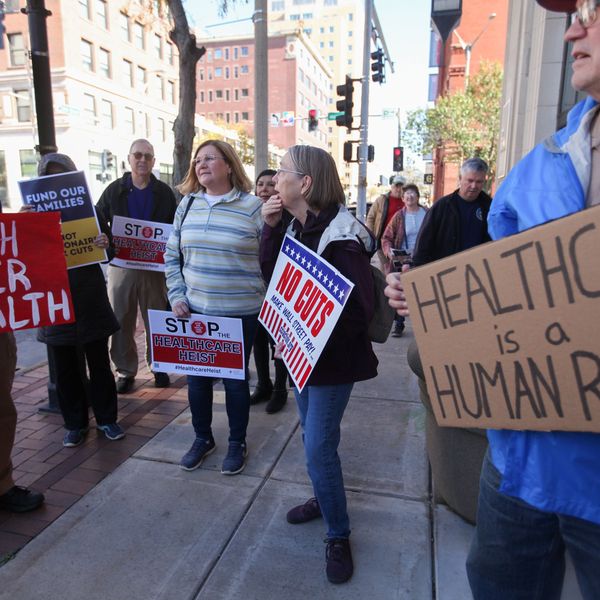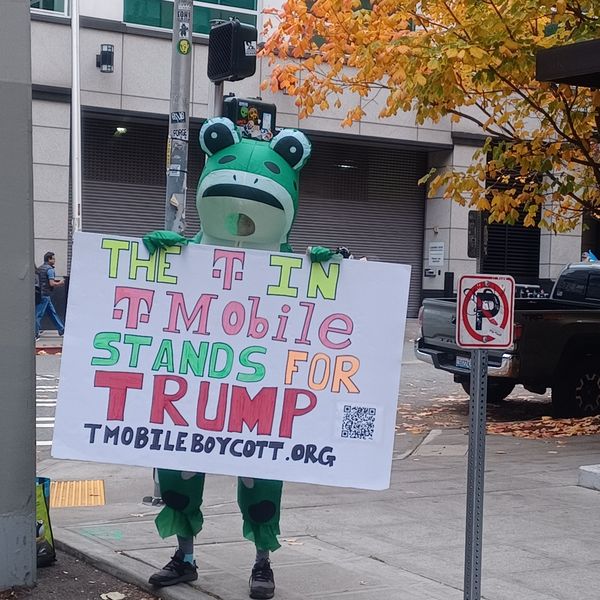What we do know, however, is that since 1989, more than 1,000 people, some of whom have spent decades in prison, have been exonerated (pdf). We also know that of that number. more than half were black and male; and their treatment by the criminal justice system, post release, is not a whole lot better than it was prior to their incarceration.
In 1989, the 16-year-old Shareef Cousins was convicted on eyewitness testimony of a murder he didn't commit, and was sentenced to death. If you review the circumstances of his case - there was no DNA evidence linking Cousin to the crime and there was actual video footage of him playing in a basketball league at the time of the murder - it's almost impossible to see how he could have been found guilty, never mind sentenced to die. When asked what he thought led to his speedy conviction, during a recent interview with NPR, Cousins attributed his death penalty sentence, without hesitation, to his race:
"I think the most important factor that we cannot turn a blind eye to is that - the character of race, especially here in New Orleans. Anytime that there is a white victim who is murdered, it is more than likely that whoever is convicted of murdering that white victim is going to be sentenced to death."
He went on to say that in such cases where the victim is white and the perpetrator is black, "someone is going down for that crime and someone is going down for that crime fast." Apparently, in Cousin's case, it didn't matter that the black man who went down for the crime didn't actually commit it.
Cousins is not the only wrongfully accused black man who feels that his race played a key role in his arrest and conviction. In Dallas, Texas, several exonerees, most of whom are black and male, have formed a group called Freedom Fighters, which is being featured in an upcoming documentary. Freedom Fighters was originally intended to act as a support group for the former prisoners, but has since expanded its role into a quasi-detective agency to investigate cases and help secure the release of other wrongfully incarcerated men and women.
One of the groups members, Johnnie Lindsey, was convicted of sexual assault and spent 26 years in prison before being exonerated. Fellow member Christopher Scott served 13 years of a life sentence for murder before being released. Also speaking with NPR, Scott said that he and his colleagues were mostly convicted on eyewitness testimony only. And when the suspect in a crime was black and male, it didn't seem to matter a whole lot which black male ended up being charged.
"At that time, all of us being convicted of a crime, all of us fit the same type of description, man. A mid-aged guy, medium height, medium weight, with a low haircut. How many people you describing when you describe that?"
The current district attorney in Dallas County, Craig Watkins, summed up the attitude of former prosecutors in the state whose careless work led to many of these wrongful convictions as follows:
"A good prosecutor can get a guilty verdict on a person that's guilty. But a great prosecutor is one that can get a guilty verdict on an innocent individual."
The fact that Dallas County makes the top ten list for wrongful convictions rates and that the majority of those exonerees are black and male, does not speak well to the racist tendencies of those shamefully unscrupulous prosecutors. At least in the state of Texas, exonerated individuals are reasonably well compensated (at a rate of at least $80,000 per year served) for the injustice done to them.
According to the Innocence Project, however, 23 states in the union have no statues in place to provide restitution to exonerees. And even in the 27 states that do have statutes in place (such as New York, for instance), the laws often only provide the exoneree with the right to file a damages claim within a specified time after his or her release.
At the time that Cousins was released from prison in New Orleans, another district that makes the top ten list for wrongful convictions (pdf), there were no restitution laws, so he was not compensated for the five years he spent on death row. It wasn't until a few years ago that the state of Louisiana put a law in place that says a petitioner may be eligible for $25,000 per year served, with a cap of $250,000, if his conviction has been vacated and if he can prove his factual innocence.
Cousins attributes this grudging compensation law in Louisiana to race, also:
"And so now I bring that back to what I was saying the first time, to race. You know, a lot of - the majority of - our guys that have been exonerated here in Louisiana have been black men. So we have $12 an hour for a maximum of 10 years [for guys] that were spending 30 years in prison.
"So I guess our legislature is saying that, well, you're a black man: for 20 years, you probably wouldn't have been employed, anyway."
So, it would seem that in many jurisdictions across America low-income black men are deemed worthless not only before they get unjustly sucked into the criminal justice system, but also after being exonerated. It's time to face up to the rampant racism that allows this situation to exist.




